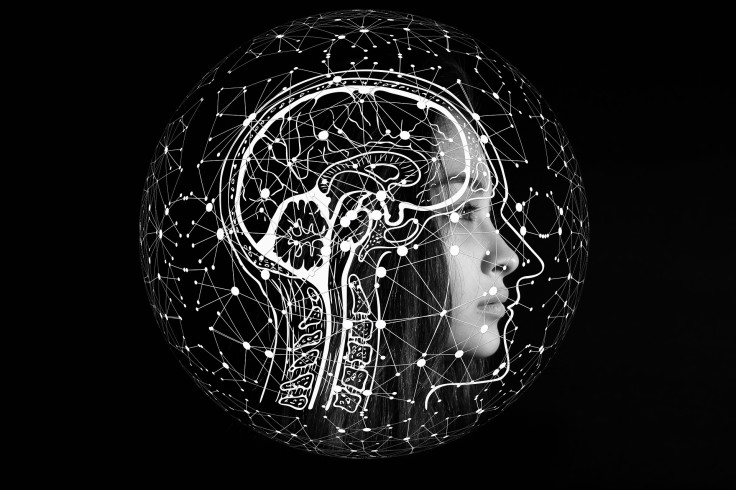In 'AI Ready' Philippines, Can This New Bill Help Ease Workplace Fears?

The Philippines is "ready" for artificial intelligence, President Ferdinand "Bongbong" Marcos Jr. said during a trip to San Francisco late last year. The country's technological shift is apparent, but just as the Philippine masses swoon over the fast-evolving technology's promises, employees in several sectors have expressed fears about the negative impact of the tech's adoption in the workplace.
A 2023 survey on the likelihood of job loss due to AI in the Philippines, recently published by the Statista Research Department, found that around 73% of the respondents indicated it is likely AI adoption will lead to job losses in the country.
Last year, the Philippine business process outsourcing (BPO) industry was jolted by the meteoric rise of AI in the country as some tech experts predicted that BPO workers are among those most at risk of getting their jobs wiped out.
Enter House Bill No. 9448 – introduced by Rep. Juan Carlos "Arjo" Atayde of Quezon City's 1st District in November. The proposed bill aims to regulate "the use of artificial intelligence and automation systems in the labor industry and for other purposes."
Section 7 of the House bill states that AI can be utilized in the workplace provided that appropriate measures are implemented to mitigate job displacement. Internet marketing specialist, digital expert and e-commerce advocate Janette Toral noted that this particular provision of the proposed legislation may be a challenge for employers.
"Section 7 is ambitious and the feasibility largely hinges on how they intersect with the economic realities businesses face," she told International Business Times. Upskilling workers will mean added costs for employers. Generative AI solutions provider Akkio estimates that overall costs for AI implementation in 2024 may reach more than $100,000, "depending on capability."
President Marcos is confident of the Philippines' readiness to become a partner of western tech companies "in navigating the AI future." He also acknowledged the "paramount importance" of training and upskilling workers so the country's tech talent demands are met.
Dr. Joel P. Ilao, director of the De La Salle University's Advanced Research Institute for Informatics, Computing and Networking (AdRIC), told IBT that upskilling is "easier said than done," but companies "need to invest" so they won't be left behind in a corporate system that is imminently leaning towards an AI-powered world.
Tech company Cisco said in a November report that the Philippines' AI infrastructure readiness "is still only at an average level." Only 35% of Filipino companies in the study consider that their infrastructure is "highly scalable" to leverage AI.
While employers are concerned about their infrastructure's preparedness for AI, employees are worried about their careers. Aside from the apparent job losses that will come with AI adoption in the workplace, another key point of concern over the tech's implementation is the use of AI tools to evaluate employee performance.
House Bill No. 9448 states in Section 11 that employees have the "right to refuse" evaluations carried out using AI tools.
Toral noted that this section requires further study and should be consulted with the Philippine Department of Labor and Employment (DOLE), as well as other government agencies such as the Department of Trade and Industry (DTI), Human Resource agencies, and industry experts and groups.
Ilao recommends the traditional way of evaluating employees, especially since "not all information about an employee is digitally captured" – such worker traits "that really matter" but AI simply can't evaluate include perseverance and "personal sacrifices." He opines that companies should "proceed with extreme caution" when using AI tech to evaluate employees even if the technology is useful in a way.
When asked for more suggestions on how companies should ensure that job losses are mitigated as they move towards AI implementation, Rep. Atayde told IBT that companies should invest in training workers with skills "to complement the recent technologies" that companies want to adopt.
On concerns regarding the use of AI tools to evaluate employee performance, Rep. Atayde noted that Section 12 of the bill gives the DOLE authority to monitor company compliance. One such way of ensuring that companies comply is also stated in Section 12, wherein the DOLE "shall compel the submission of the AI Governance Policies that should embody the 'right to refuse' of the employees."
Rep. Atayde noted that while the DOLE will still be the primary government agency that will address AI-related labor concerns, there is a need to establish "an oversight body which shall ensure the proper implementation of the law, and shall be able to address concerns that would arise in the future."
For Ilao, an inter-agency task force may be necessary in this regard. He said the following are top agencies he believes could help in discussions regarding AI's significant impacts in the workplace: Department of Information and Communications Technology (DICT), Department of Science and Technology (DOST), and National Economic and Development Authority (NEDA).
Both Ilao and Toral agree that if an oversight body dedicated to the mitigation of job losses due to AI adoption is established, the panel should consider feedback and recommendations from key industry players, experts in the field, and even from the working public.
House Bill No. 9448 is not an urgent bill, and as of late January, it has been referred to the House Committee on Information and Communications Technology.
© Copyright IBTimes 2024. All rights reserved.












